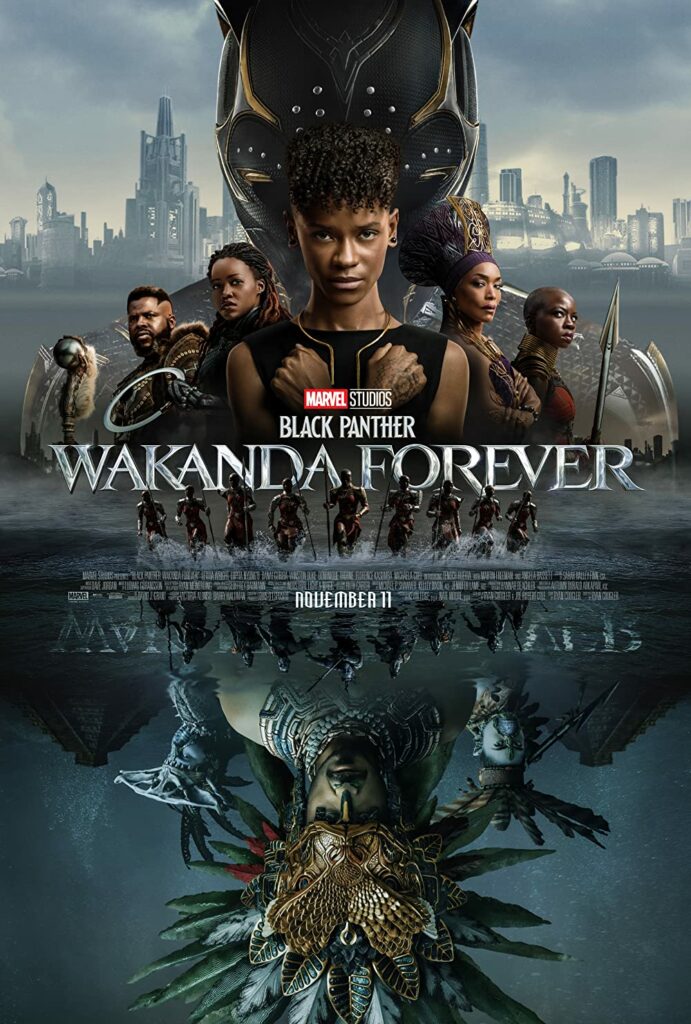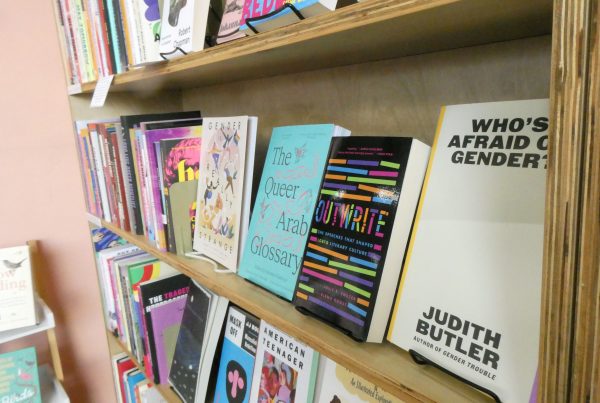When Black Panther actor Chadwick Boseman shockingly passed away during the peak of his career due to colon cancer in August 2020, grief, sadness and condolences were spread throughout the internet.

However, questions lingered on the future of his iconic character, T’Challa, or Black Panther. The sequel to the legendary “Black Panther” film had been announced in May 2021 and fans were anxious to see how Marvel Studios would tackle the unexpected change.
On Nov. 11, those questions were answered when “Black Panther: Wakanda Forever” hit theaters globally.
The film, with the first film’s director Ryan Coogler returning, has a runtime of two hours and forty one minutes. While its length can be seen as intense, when watching the movie, it flies. The film covers so many topics and covers the rise of a new superhero legend who is created by actress Letitia Wright, who plays Black Panther’s sister, Shuri.
But, the main pitfall is: it dives in too deep, too fast. Revealing the death of the original Black Panther instantly and forcing viewers to instantly engage with a massively and progressively changing Wakandan society, is the film’s biggest flaw while it casts a wide net.
With the rise of a new and undiscovered species of people based underwater, the film ignores to question the elements that shocked the Marvel universe in the past. Topics about the “Avengers: Infinity War” Thanos snap that eliminate half of the global population was never even addressed from this new society of people and it begins to push the question of why we never heard or knew of these characters until now.
Recently, Marvel has been pushing their films and products as a cash grab and tend to complicate and add too many elements to their films. Consistently adding new superheroes and villains that all lack depth and all include the same three layers of character development, it is easy to stop caring about the characters and rather just see the films as a way to get some multi-hundred million dollar action sequences to appear on the screen.
Due to this issue, it is incredibly hard to actually care about the villains and their people, it just feels like they were added to make the movie a superhero movie with two people of power going against each other.
The best thing this new Black Panther film offers is the amount of empowerment that is expressed from not only the women in the film, but also black women. It is truly inspiring to see so many powerful black women gain so much power and to see it all happen on screen accommodated by all of their marvelous acting is simply just a stunning capture of culture and love.
The film can easily be seen as a thank you to the late Chadwick Boseman, while also progressing the story beyond him. With elements of growth, this film is a great stepping stone in the Black Panther storyline and allows us to gain a grip as to what the future of Wakanda and Black Panther is.
Though the film does consistently repeat many of the same elements that made all the other Marvel movies feel the same, this Black Panther film is a creature in itself. With a lengthy runtime, it is honestly hard to skip this Marvel film in comparison to its recent counterparts.
This film holds a sense of necessity that recent Marvel projects simply haven’t been able to have. If you were to miss this film, you could catch on in later projects, but the developments and growth of the characters is so important and unique from both a culturalist perspective but also from that of an empowering feminist message.
While the film does suffer from elements that have made recent Marvel films start to decline from their glory days of ten years ago, it manages to contain an element of memorial and necessity by exploring growth, grief and empowerment.
Opinions expressed in The Nevada Sagebrush are solely those of the author and do not necessarily express the views of The Sagebrush or its staff. Gabriel Kanae is a student at the University of Nevada studying journalism. They can be reached at edrewes@sagebrush.unr.edu and on Twitter @NevadaSagebrush.









